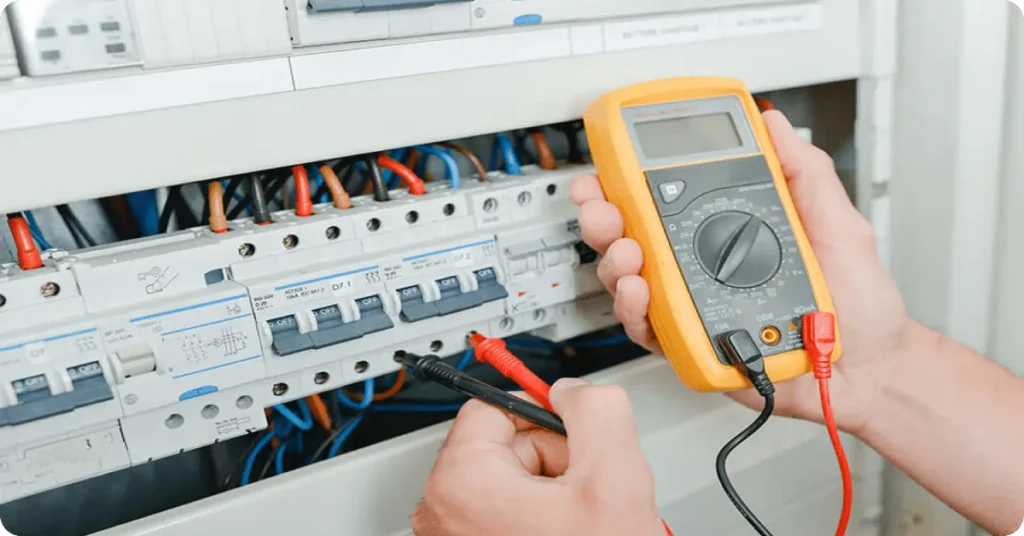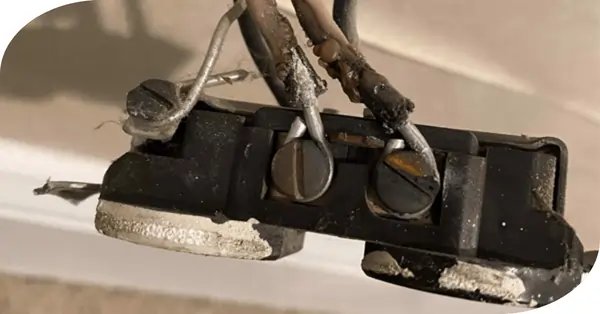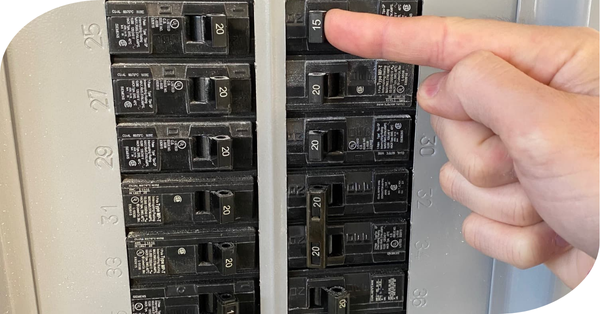Electrical Home Inspection
You found this page because you want to get an expert to come to your home or a home you’re hoping to purchase to determine the condition of the various electrical components, right? This is a particularly confusing topic because neither a “home inspection” nor an “electrical inspection” is the best way to identify potential or current electrical issues. It’s confusing because both sound like they might be what you want. The confusion arises mainly because of what each actually means by definition which we will describe later and because of when such “inspections” are requested or needed. Perhaps you’re buying a new home and you genuinely want a checkup on the electrical system of your potential future home for peace of mind. Maybe a bank or township is requesting you to get an “electrical inspection certificate.” Maybe you’re wondering why a home inspection won’t divulge any potential future problems. Just like my other articles I want to share my knowledge with you and hopefully save you time, money, and energy.
My professional opinion: You Actually Need An Electrician
If you for any reason are concerned about the integrity of the electrical components of your home or a home you’re planning on purchasing, my advice is this: Hire a licensed electrician for a few hours to look around the house, inspect the panel, look in the attic, open a few devices, make sure all the lights and fixtures are working, and get an overall understanding based on their expertise for what condition the electrical system is in. It is common for an electrician to have a check list for completing a home inspection. They then report back to you with any repairs and/or upgrades they think may be immediately necessary. A home is likely one of the biggest investments you will make, for a few hundred dollars at most it’s worth every penny, all of our verified electricians are more than capable and willing to complete these types of valuable inspections. Now let me explain the difference between a Home Inspection and an Electrical Inspection and why neither are what you think they are.
What Is A Home Inspection And What Does It Cover?
Home Inspection: An overall inspection of the various components that make up a home by a home inspector or engineer. A home inspector is hired by the potential buyer to thoroughly evaluate a home to find any possible issues that would be of cost to the buyer should they purchase the home. They will thoroughly check all of the windows, drains, faucets, roof, heating system, cooling system, etc. When finished, the inspector will generate a report with pictures of all the things they note that could be potential issues and cost money for the buyer should they purchase the home and all of this is really great because these things are absolutely important. The buyer then takes the report and if serious issues are present, will have those issues examined by a professional in that area to find out how much these things would cost to have repaired before they purchase the home. Overall home inspections are great, the inspectors are very knowledgeable and I HIGHLY recommend anyone purchasing a home to get one. However, the problem with the electrical components is that they all exist INSIDE of walls, ceilings, floors etc. Home inspectors are great and may very well find some potential electrical issues but much is simply beyond the scope of what they can investigate. There is a reason it takes just as much time to become a master electrician as it does a doctor.
Electrical Inspection Explained
Electrical Inspection: An inspection conducted by an Electrical underwriting company that will issue a certificate to close out a permit. Nothing about an underwriters certificate will help you identify any potential electrical problems. You will very likely not need to know anything about this for purchasing a house but to clarify for everyone here’s how it works: There are 3 types of electrical inspections done by electrical underwriting companies. Rough, Final, and Survey. A “rough” inspection is conducted during the new construction of a home or addition which is a visual walkthrough inspection of the completed electrical components when the walls are still only studs. This allows the electrical inspector to see everything that one can not see once sheetrock and insulation are installed. After drywall is up and the electrical devices installed, or trimmed as is commonly said in the industry, a “final” inspection is conducted. At this point, if everything is up to the current code the electrical inspection company will issue a certificate of inspection to the homeowner with the licensed electricians name and information as well as the information of the scope of work. This will then be used to close out the permit.
If a home needs an inspection after it is built, years after for example when there is no information available as to who built it, an electrical inspection company can issue what is called a “survey” inspection. Sometimes a “survey” inspection is required for banks, lending institutions, and municipalities to close out old permits when purchasing a home. This is very vague and entails an electrical inspector making sure everything externally is in good condition. They do not open walls, devices, etc. nor do they have any magical abilities to see inside of them, it’s just not what they do. I can’t tell you how many times I’ve seen banks and lenders requesting these for other reasons unaware that it will have almost no bearing on anything which only leads to more confusion.
How Much Does an Electrical Home Inspection Cost?
I would absolutely recommend a home inspection and ALSO a separate investigation by a licensed electrician. At the time of writing this, home inspections in my area are between $500-$600 and getting a licensed electrician to come out to your home and spend 2 hours should be $400 on the high side. Combined, they should not cost more than $1000 even in the most expensive parts of the country. The good news is relative to a home purchase price, this is a drop in the bucket!
If you’re new to an area or just looking for a licensed electrician to help you out here, head on over to our directory where you’ll find some of the best, most qualified electricians. I know this was wordy and may have been mildly confusing but I hope this was able to shed some light on these “inspections.” Good luck!
Closing Thoughts and Fun Things I’ve Found
I’ve done quite a few electrical home inspections for customers before and after home purchases. Here are some of the fun things I’ve found.
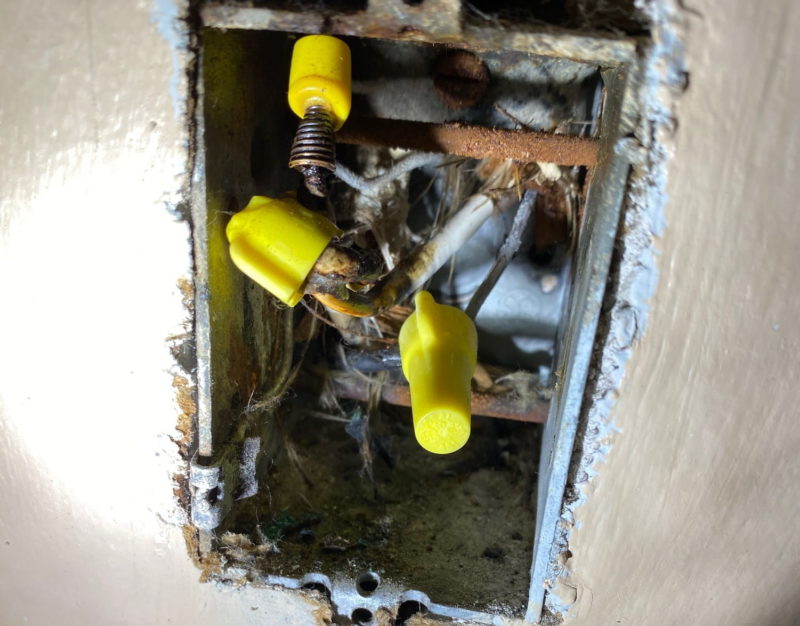
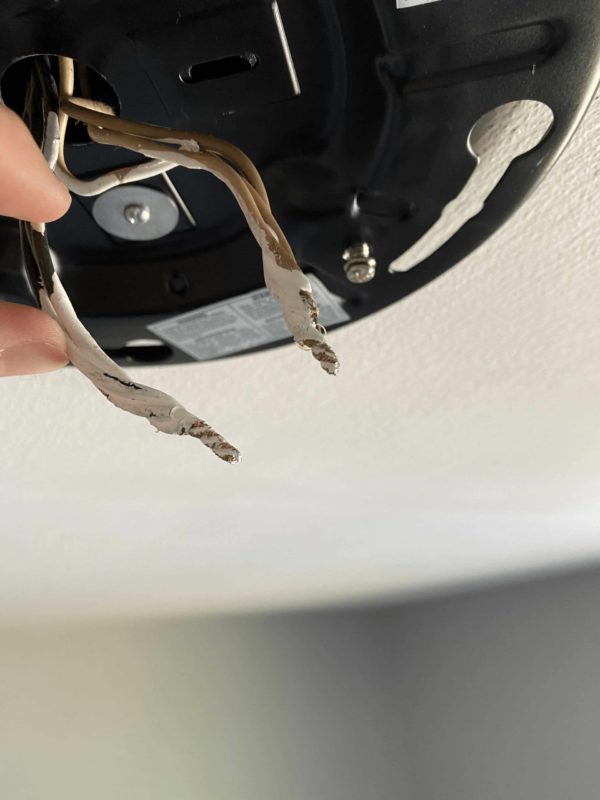
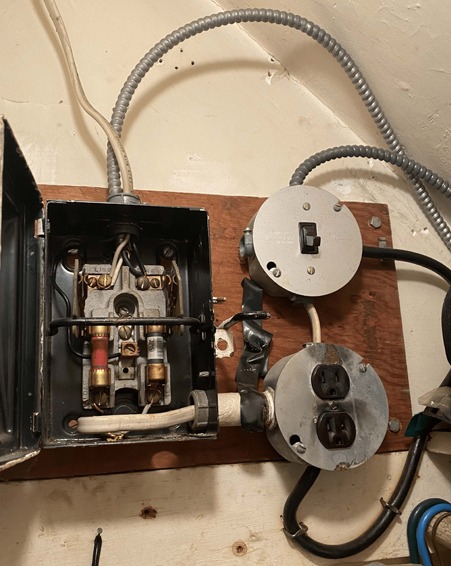
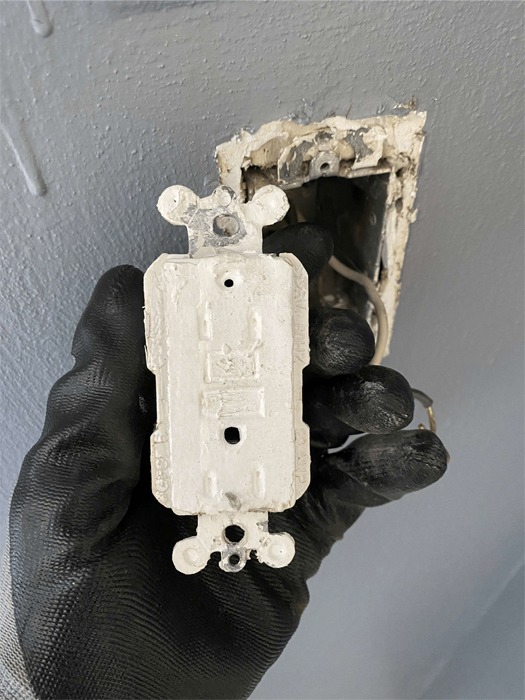
In closing, if you’re looking for a home electrical inspection you’ll need to call an electrician. They will come and open up a few devices and conduct what many people call a “onceover” to give you an idea of the condition of the various components of the electrical system from the receptacles to the service, to things you may not even know exist! If you need a reputable electrician in your area, head on over to our Registry to find experienced electrical contractors that can help you out. Thanks for reading.
An electrical home inspection is essentially a check up by a licensed electrician. The integrity of your electrical system from the panel to receptacles will be checked to make you aware of any potential issues.
Typically, an electrical inspection conducted by an electrical underwriting company is only needed to close out permits, it does NOT verify the integrity of the electrical components of an existing home.
A home inspection is recommended before purchasing a house by a certified home inspector to inspect and report the integrity of the home from the foundation to the roof an everything in between. Home inspections do not cover the electrical system in depth and it is advisable to hire a licensed electrician to conduct an electrical home inspection.

